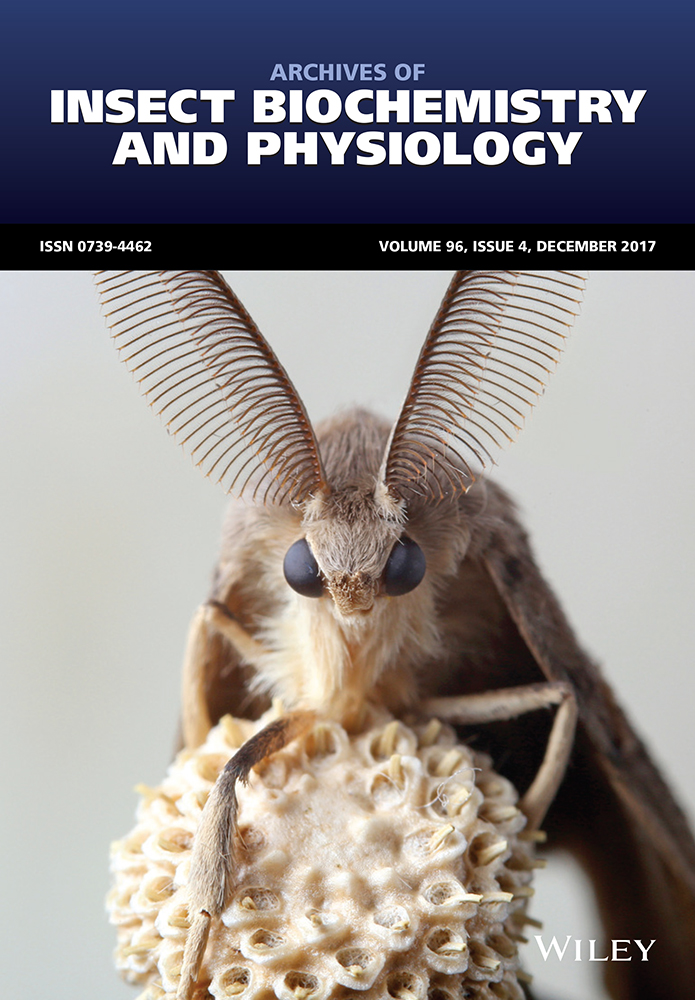Silencing pyruvate kinase (NlPYK) leads to reduced fecundity in brown planthoppers, Nilaparvata lugens (Stål) (Hemiptera: Delphacidae)
Grant sponsor: National Key R & D Program of China; Grant number: 2017YFD0200400; Grant sponsor: Natural Science Foundation of Jiangsu Province, China; Grant number: BK20171283; Grant sponsor: National Natural Science Foundation of China; Grant number: 31371938; Grant sponsor: Innovative Cultivation Foundation of Yangzhou University; Grant number: 2016CXJ065; Grant sponsor: the Jiangsu Agricultural Scientific Self-innovation Foundation; Grant number: (CX(15)1057); Grant sponsor: the Foundation of Science and Technology of Jiangsu Province, People's Republic of China; Grant number: BE2015342.
Abstract
Pyruvate kinase (PYK) operates in the glycolytic pathway, responsible for regulating the balance between glycolysis and gluconeogenesis. The previous work indicates PYK acts in development of Drosophila embryos and in embryonic muscle growth, from which it may be inferred that PYK acts in insect fecundity. More to the point, as a central enzyme in the glycolytic pathway, PYK acts in many energy-spending functions in most organisms. On the background findings that triazophos (TZP) stimulates fecundity via increase activities of several genes in brown planthoppers, Nilaparvata lugens, we investigated the combined influence of TZP and silencing a N. lugens PYK (NlPYK) on reproduction-linked biological performance parameters. Here, we report that TZP+dsNlPYK treatments led to reduced (by 26%) ovarian, but not fat body, protein content relative to controls. Ovarian (35%) and fat body (54%) soluble sugar contents were reduced. TZP+dsNlPYK treatments also led to reduced (by about 24%) fecundity, expressed as numbers of eggs laid. These data show directly that NlPYK acts in insect fecundity, probably via increases in glucose metabolism.




